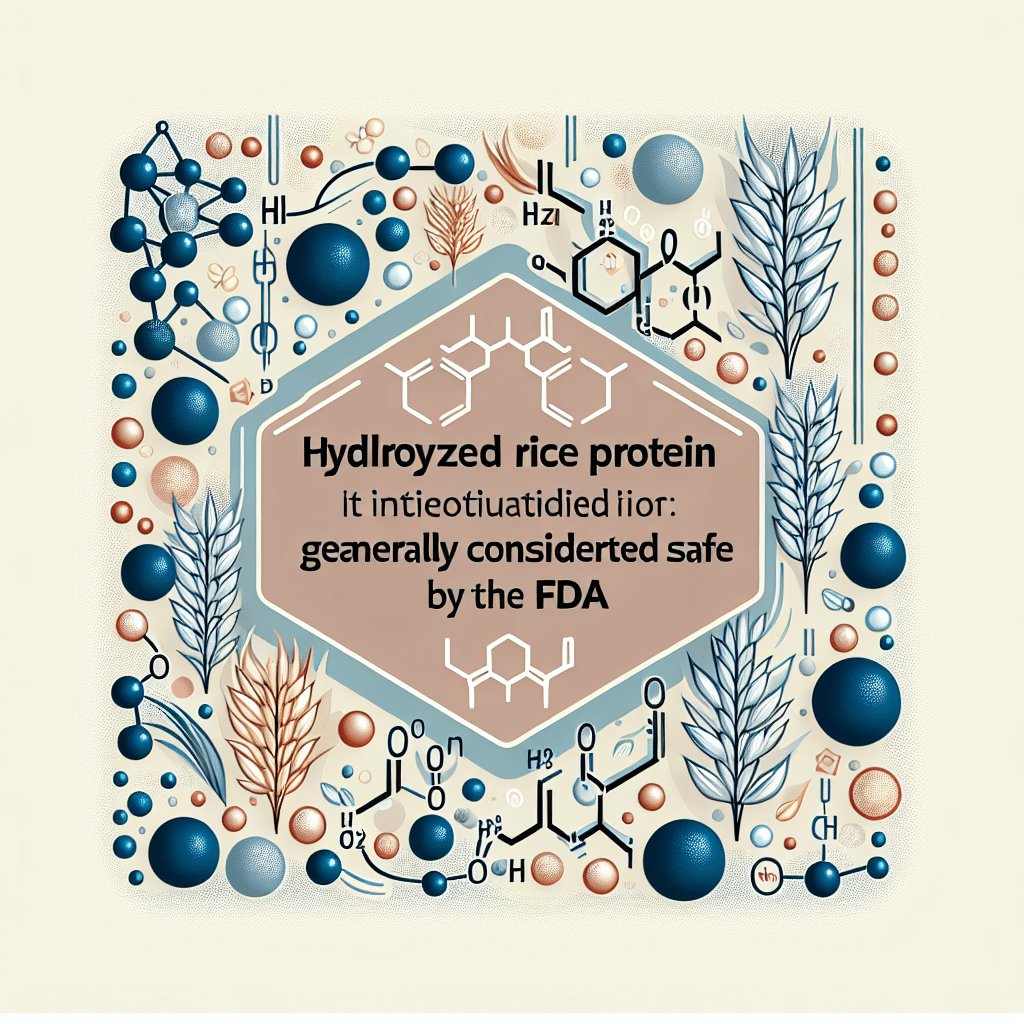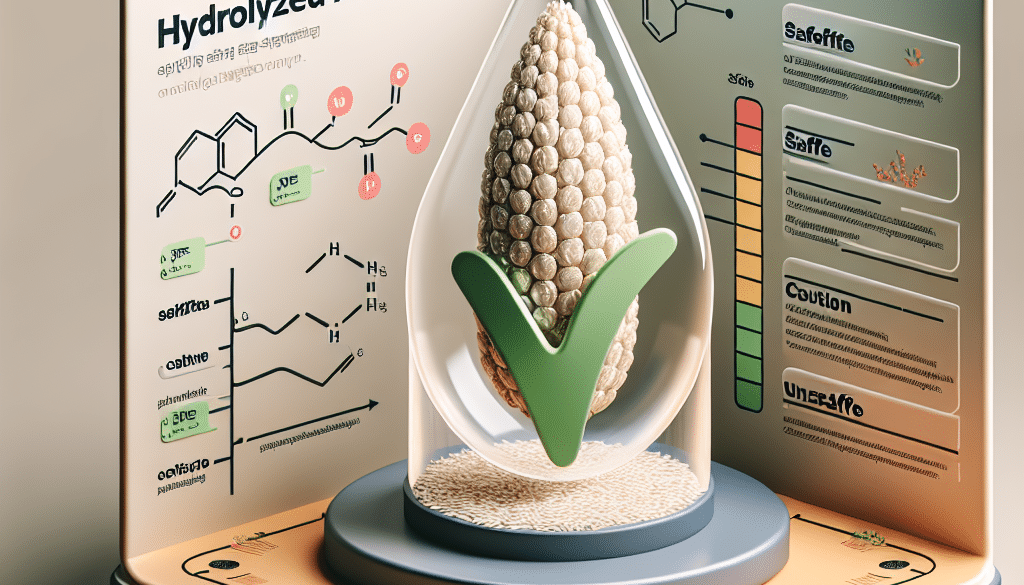Is Hydrolyzed Rice Protein Safe?
-
Table of Contents
- Hydrolyzed Rice Protein Safety: A Comprehensive Analysis
- Understanding Hydrolyzed Rice Protein
- The Safety Profile of Hydrolyzed Rice Protein
- Production and Processing Standards
- Potential Contaminants
- Allergenicity and Digestibility
- Regulatory Oversight and Standards
- Scientific Research on Hydrolyzed Rice Protein Safety
- Case Studies and Clinical Trials
- Comparison with Other Protein Sources
- Benefits of Hydrolyzed Rice Protein
- Conclusion: Is Hydrolyzed Rice Protein Safe?
- Discover ETprotein’s High-Quality Protein Products
Hydrolyzed Rice Protein Safety: A Comprehensive Analysis

Hydrolyzed rice protein has become a popular ingredient in various food, cosmetic, and nutritional products. As consumers increasingly seek plant-based and hypoallergenic alternatives to traditional protein sources, the safety of these novel ingredients comes under scrutiny. This article delves into the safety profile of hydrolyzed rice protein, examining scientific research, regulatory standards, and potential health implications.
Understanding Hydrolyzed Rice Protein
Hydrolyzed rice protein is derived from brown, white, or whole grain rice. The process of hydrolysis involves breaking down the protein into smaller peptides and amino acids, making it easier to digest and absorb. This form of protein is particularly favored in vegan and vegetarian diets, as well as by individuals with allergies to soy, dairy, or gluten.
The Safety Profile of Hydrolyzed Rice Protein
When assessing the safety of hydrolyzed rice protein, it is essential to consider various factors, including its production process, potential contaminants, and its impact on human health.
Production and Processing Standards
The safety of hydrolyzed rice protein begins with its production. High-quality rice protein is manufactured under strict guidelines to ensure purity and safety. The hydrolysis process should not involve any harmful chemicals or contaminants that could pose health risks.
Potential Contaminants
One concern with plant-based proteins, including rice protein, is the potential presence of heavy metals such as arsenic, lead, mercury, and cadmium. These contaminants can be naturally occurring in soil and water, and thus may be absorbed by the rice plant. Reputable manufacturers test for these substances to ensure levels are within safe limits established by regulatory bodies.
Allergenicity and Digestibility
Hydrolyzed rice protein is considered hypoallergenic, making it a safe option for individuals with common food allergies. Additionally, the hydrolysis process improves digestibility, reducing the likelihood of gastrointestinal discomfort that can be associated with other protein sources.
Regulatory Oversight and Standards
Regulatory agencies such as the U.S. Food and Drug Administration (FDA) and the European Food Safety Authority (EFSA) have guidelines in place to ensure the safety of food ingredients, including hydrolyzed rice protein. These organizations evaluate the evidence on the safety and efficacy of food additives and establish acceptable daily intake levels.
Scientific Research on Hydrolyzed Rice Protein Safety
Several studies have investigated the safety and nutritional value of hydrolyzed rice protein. Research has shown that it is a complete protein, containing all essential amino acids. Moreover, studies have not found any significant adverse health effects associated with its consumption.
Case Studies and Clinical Trials
Clinical trials involving hydrolyzed rice protein have demonstrated its safety and efficacy as a dietary supplement. Participants in these studies typically do not report adverse effects, and the protein has been shown to support muscle repair and growth, similar to whey protein.
Comparison with Other Protein Sources
When compared to other protein sources, hydrolyzed rice protein has a favorable safety profile. Unlike some animal-based proteins, it is free from cholesterol and lactose, and it does not carry the same risks of allergic reactions as soy or dairy proteins.
Benefits of Hydrolyzed Rice Protein
Beyond its safety, hydrolyzed rice protein offers several health benefits:
- It is a good source of plant-based protein for muscle building and repair.
- It is easily digestible and can be consumed by people with sensitive stomachs.
- It is suitable for individuals following a vegan or vegetarian diet.
- It has a low environmental impact compared to some animal-based proteins.
Conclusion: Is Hydrolyzed Rice Protein Safe?
In conclusion, the current body of scientific research and regulatory standards suggest that hydrolyzed rice protein is a safe and beneficial ingredient for most individuals. Its hypoallergenic nature, ease of digestion, and complete amino acid profile make it an excellent choice for those seeking plant-based protein options. However, consumers should opt for products from reputable manufacturers that adhere to strict quality control measures to avoid potential contaminants.
Discover ETprotein’s High-Quality Protein Products
If you’re looking for safe and high-quality hydrolyzed rice protein, ETprotein offers a range of products that meet stringent safety and quality standards. Their organic rice protein and other plant-based proteins are characterized by a neutral taste, non-GMO, and allergen-free attributes. With purity levels exceeding industry standards, ETprotein caters to various industries, including nutraceuticals, pharmaceuticals, and food and beverage.
ETprotein’s commitment to excellence is evident in their extensive product range and their reputation among leading global brands. For those interested in incorporating safe and sustainable protein sources into their products or diet, ETprotein is a reliable choice.
About ETprotein:
ETprotein, a reputable protein and L-(+)-Ergothioneine (EGT) Chinese factory manufacturer and supplier, is renowned for producing, stocking, exporting, and delivering the highest quality organic bulk vegan proteins and L-(+)-Ergothioneine. They include Organic rice protein, clear rice protein, pea protein, clear pea protein, watermelon seed protein, pumpkin seed protein, sunflower seed protein, mung bean protein, peanut protein, and L-(+)-Ergothioneine EGT Pharmaceutical grade, L-(+)-Ergothioneine EGT food grade, L-(+)-Ergothioneine EGT cosmetic grade, L-(+)-Ergothioneine EGT reference grade and L-(+)-Ergothioneine EGT standard. Their offerings, characterized by a neutral taste, non-GMO, allergen-free attributes, with L-(+)-Ergothioneine purity over 98%, 99%, cater to a diverse range of industries. They serve nutraceutical, pharmaceutical, cosmeceutical, veterinary, as well as food and beverage finished product distributors, traders, and manufacturers across Europe, USA, Canada, Australia, Thailand, Japan, Korea, Brazil, and Chile, among others.
ETprotein specialization includes exporting and delivering tailor-made protein powder and finished nutritional supplements. Their extensive product range covers sectors like Food and Beverage, Sports Nutrition, Weight Management, Dietary Supplements, Health and Wellness Products, and Infant Formula, ensuring comprehensive solutions to meet all your protein needs.
As a trusted company by leading global food and beverage brands and Fortune 500 companies, ETprotein reinforces China’s reputation in the global arena. For more information or to sample their products, please contact them and email sales(at)ETprotein.com today.












